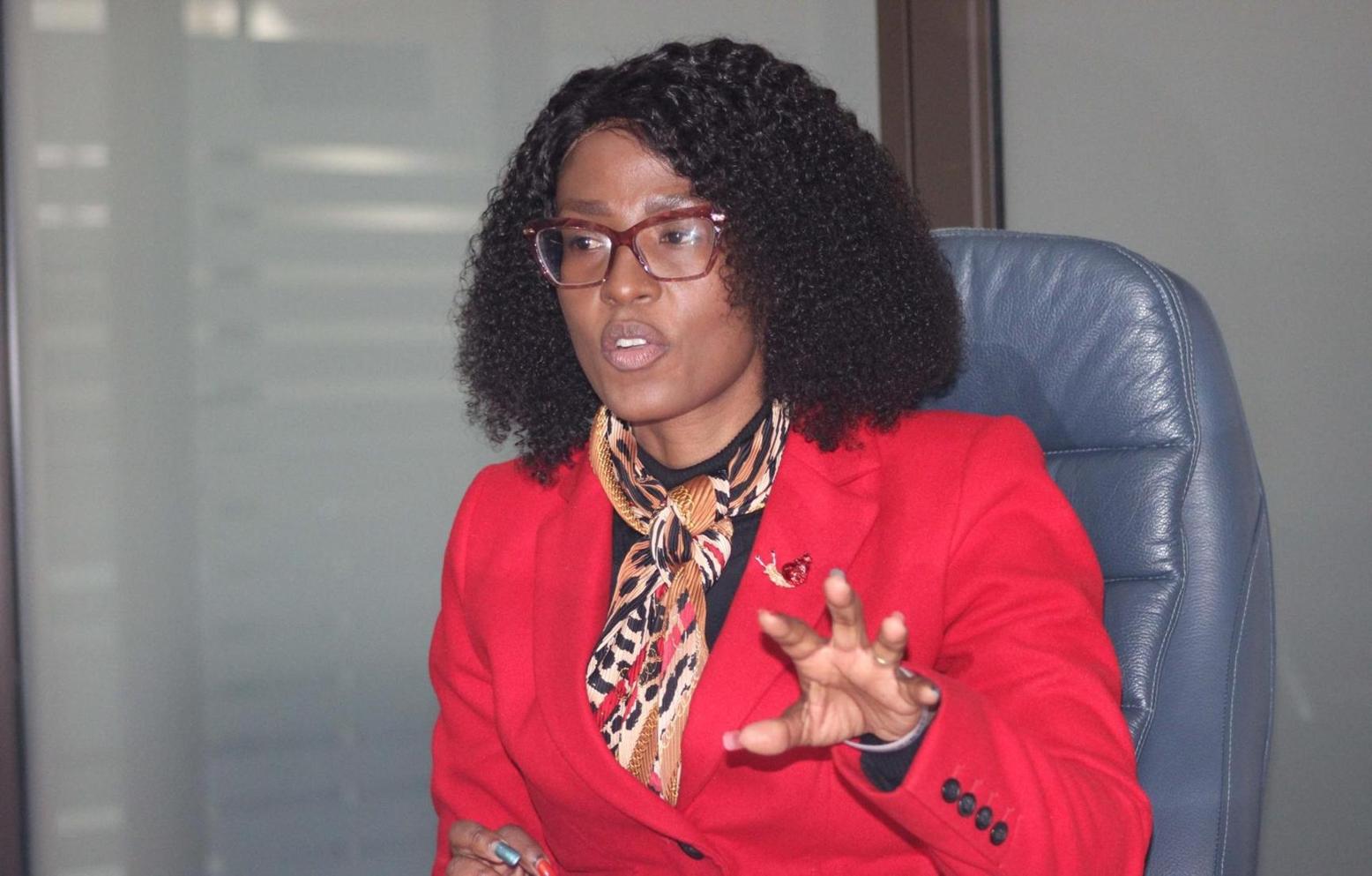Africa-Press – Lesotho. Lesotho Communications Authority (LCA)’s bid to improve competition in the telecommunications sector and level the playing field between local mobile networks are being sabotaged by people with vested interests in the status quo.
Angela Collings, a strategic communications specialist who boasts local and international companies as well as civil society organisations among her clients, wrote in a letter to Public Eye this week.
The letter reveals a lot about the stumbling blocks encountered by the LCA in trying to respond to a public outcry regarding limited access to communication services in the country.
“Currently in Lesotho only the urban elite benefit from being online.
At the same time, most of the population are left offline, or only able to be online intermittently and for short periods due to the relatively high costs,” reads the letter which Public Eye received yesterday.
“Added to this,” it adds, “and because the sector is a duopoly, competition is insufficient to promote effective price deductions for consumers. Combine this with the Covid-19 pandemic that has pushed the need for digital products and services. ”
Collings said the government of Lesotho needed to urgently address issues in the telecommunications sector that are hindering access to affordable digital products and services.
She said that was why over the past year LCA was executing a fresh mandate aimed at opening up the telecommunications market to a variety of operators.
“Minister of Communications, Science and Technology, Keketso Sello, says through the Universal Service Fund housed within the LCA, they have introduced changes to existing conditions of usage and infrastructure sharing to improve competition and level the playing field between local mobile networks,” she said.
However, to facilitate these changes, according to Collings, amendments to current legislation need to be approved by cabinet, “and this has become increasingly challenging due to pressure being mounted by people with a vested interest in the telecom market remaining as is”.
Key to this, she added, is opposition to LCA’s plan to introduce regulatory technology to monitor national and international telecommunications traffic.
“This system will ensure access to accurate telecom metrics to enforce licensing compliance, combat network fraud, increase revenue assurance, and apply billing integrity across all communication networks available in Lesotho,” she said.
Sello told Public Eye yesterday that the ministry of communications, science and technology fully supported the amendments and would see them through “since we have come this far already”.
“The amendments are now before the Office of the Parliamentary Counsel, the office which has a draftsman,” he said.
The office of the parliamentary counsel is a group of government lawyers which specialises in drafting legislation and works closely with ministries to translate policy into clear, effective and readable law.
“The process to make the amendments has taken longer than we had anticipated; it has been a bit slow.
I made a follow-up yesterday (Wednesday) and found that there had been a misunderstanding between a lawyer in the of the Office of the Parliamentary Counsel and the LCA lawyer,” he said.
In her letter, Collings also indicated that LCA was currently constrained in its ability to monitor compliance, as well as in accessing real-time data.
She said the authority was heavily reliant on operators, Econet Telecom Lesotho (ETL) and Vodacom Lesotho (VCL) to provide accurate and authentic information about sector performance. This self-declaratory system has proven to be ineffective as seen in the case of Vodacom Lesotho, she adds.
“It also impacts consumers, the regulator has seen discrepancies in the billing of some products, charging of calls by customers to toll-free numbers and overcharging resulting from treatments of per minute or per second billing, amongst others,” she said.
Collings further indicated that without the technical capability or mechanism to monitor compliance as well as access real-time data that provides accurate information on market dynamics, the LCA was hamstrung in its ability to enhance the effectiveness of its
regulatory mandate. “If the LCA is to meet the Prime Minister Dr Moeketsi Majoro’s instruction to lead by example ensuring compliance of Lesotho’s laws, the regulatory amendments must be approved,” she said.
LCA is a statutory body, established in June 2000, with the mandate of regulating the communications sector in Lesotho. Its mandate entails: granting licences to operators, promoting fair competition, approving tariffs, empowering and protecting consumers, among others. In October last year, it announced that it had revoked VCL’s licence.
“Notice is hereby given of the revocation of the Unified Licence of Vodacom Lesotho PTY Ltd in accordance with section 47(1)(e) of the communications act, 2012 read with conditions 7(c) and 8 of the terms of licence for failure to comply with the directive to pay a penalty of M40,200,000 by October 7, 2020,” LCA said in a statement.
It said the notice was published in accordance with condition 8 of the unified licence. Vodacom was fined a staggering M134 million for allegedly violating its licence conditions.
Imposing the fine, LCA cited a battery of transgressions it said VCL had committed since 2016. In a September 28, 2020, letter to VCL, LCA Chief Executive Officer ’Mamarame Matela instructed the company to immediately pay M40.2 million or 30 percent of the fine.
Matela, however, said the other M93.8 million (70 percent) of the fine was suspended for five years on condition that VCL “does not commit any further contraventions during the said period”.
Public Eye
was not able to get a comment from Matela yesterday as she was not reachable on her mobile phone. VCL has a market share of 85 percent according to Collings and is majority-owned by Vodacom Group Limited (80 percent), and Sekhametsi Consortium which owns the remaining 20 percent.
Lesotho’s private sector, government and parastatals rely heavily on the services offered by VCL. When its licence was revoked, VCL went to court and successfully had the LCA’s decision reversed after it won an interim court order.
The matter remains unresolved, and in court papers LCA lawyer, Advocate Thabo Mpaka, blasted Vodacom for hiding behind politicians instead of dealing with the charges that the LCA had levelled against it, Collings wrote in her letter. Sello recently told media that 36 percent of senior staff at LCA had personal interests in companies they are supposed to regulate.
“This, coupled with allegations that Vodacom Lesotho former board Chair Matjato Moteane is using his political connections to retain the telco’s market dominance, raises serious concerns about conflict of interests and the effectiveness of the LCA in regulating the telecom sector,” Collings said.
“As a regulator it has to ensure impartiality when engaging with telecom companies therefore LCA employees and employees from companies it regulates cannot have a conflict of interest,” she added.
She indicated that this had been emphasised by the Lesotho government when in September last year it advised the LCA to enhance the effectiveness of its regulatory mandate. Prime Minister Dr Majoro urged the authority to lead by example and ensure compliance with the laws of Lesotho, she said.
For More News And Analysis About Lesotho Follow Africa-Press






